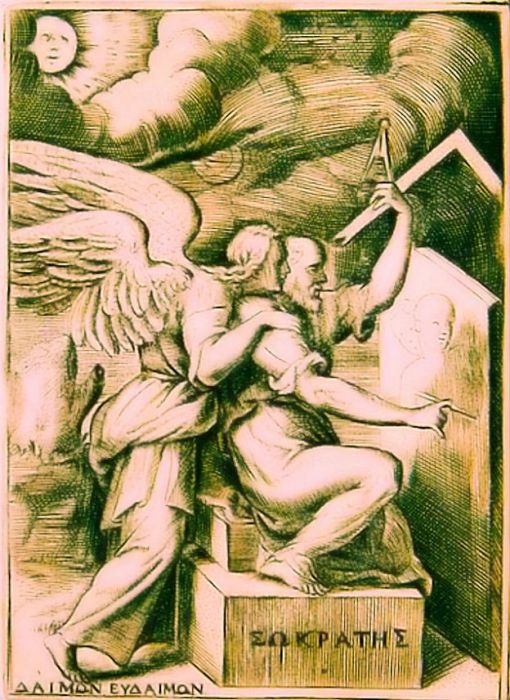
Daimonology synthetic principles, this article contains the other fifty principles of Daimonology, from n.51 to n. 100, that is fifty aphorisms written by Carl William Brown on Daimonology, a new didactic methodology. Here you can read a short introduction to Daimonology with the first fifty synthetic and enigmatic principles.
Aware with André Breton that our knowledge compared to our ignorance is little, we want to convey with our words, our ideas and our initiatives an original, progressive and dynamic way of understanding the education and dissemination of the intellectual resources of the our planet. In any case, our philosophy which underlies our cultural project refers to Monod’s “ethics of knowledge” and is based not only on a holistic conception of knowledge but also on complete faith in continuous research and continuous experimentation, alone and only possibility to improve our potential and therefore also our existence.
In recognizing that our lives lack inherent purpose, we must turn to a ceaseless and unending quest for understanding the scientific underpinnings of our reality as the only source of meaning. It is our duty to ensure that all individuals have access to knowledge and its foundations, and that the means of its dissemination and expansion are made publicly available to all.
Only by doing so can we hope to elevate the quality of our existence on this strange vessel hurtling through space. It must be universally acknowledged that education, both formal and lifelong, as well as interdisciplinary research, are the inheritance of all, and the foundation of our daily journey. We must not allow these pursuits to become a source of political, economic, or, worst of all, military strife. Our most pernicious adversaries are our own ignorance and folly, and it is only through collective effort and collaboration that we may hope to overcome them.
This is why we invite everyone to collaborate, without exception, and to take part in our initiatives and projects, perhaps expanding them and always giving birth to new ones. Therefore we extend a heartfelt invitation to all, without exception, to join hands with us in our initiatives and projects, and even expand upon them, birthing new ones that could better the lives of people worldwide.
It is our fervent belief that the philosophy of knowledge we espouse can foster greater equality and empower everyone, but we need everyone’s participation and cooperation to make this a reality. Our hopes will be crushed if this goal isn’t achieved, and it could lead to further clashes, conflicts, and even wars that would push the world back into a state of chaos and upheaval.
It is incumbent upon all people of goodwill to come together, shedding their selfishness, vanity, and pettiness, and letting go of their privileges, to work towards a brighter future for humanity. Let us put our collective effort and resources towards this noble cause, and strive towards a world that’s more just, equal, and full of opportunities for all.
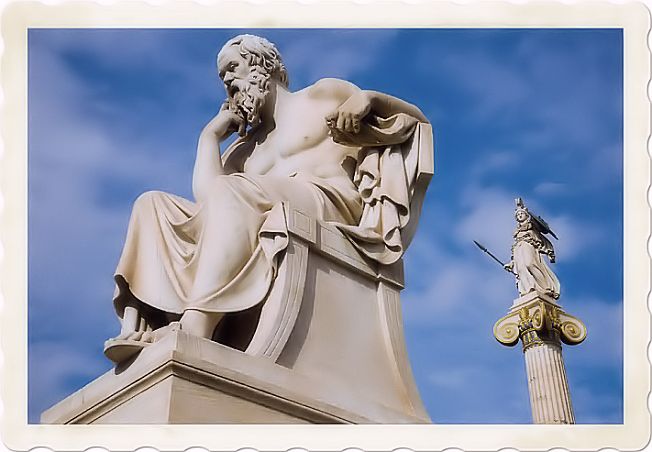
51) Daimonology does not seek easy solutions and pre-packaged answers, let alone simplistic and banal to the greatest existential doubts and mysteries, in fact it knows perfectly well that this would limit its own creative research which sees the obstacle and not knowing as primary stimuli for the enrichment of their knowledge.
52) Daimonology holds the study of languages and linguistics in the utmost consideration, in fact language is one of the most important phenomena ever for our species and not only that, but it is also aware that we must never forget the importance of gestures, of signs and of the body. So the maximum is the study of pragmatic linguistics applied to the needs of the body and mind.
53) Daimonology does not have nor could it support partisan political ideas, therefore it cannot openly take sides in favor of any political party, in fact it seeks the synthesis of the best proposals and actions present in each cultural grouping; instead the opposite is true, that is Daimonology for its own livelihood can be supported and nourished by any social, political, cultural, industrial, trade union and commercial organization.
54) Daimonology feeds on itself and everything around it, it learns from both positive and negative things. Daimonology can obviously be expanded and in the absence of its creator the entire aphoristic work of Carl William Brown could be of great help, from which excellent ideas can be drawn to develop new synthetic principles to add to this handbook. Obviously then the entire human knowable corpus can and must be a stimulus to Daimonology.
55) Daimonology knows perfectly well with Swift that man is religious enough to hate and kill himself, but not religious enough to love and help himself. This leads her to conclude that religion is nothing more than literature, while literature is much more than a religion.
56) Daimonology feels close to the Movement for Human Potentialities and to the new Transpersonal Psychology, aware that only a new collaborative and collective spirit will be able to lead individuals to overcome their own selfishness and to reach a deeper and more human universalistic integration.
57) Daimonology seeks to dominate one’s affections and desires, for this reason it follows the wise motto of the emerald tablet on which Trismegistus engraved the following words: “It is true, it is certain, it is real; what is above is like what is below, and what is below is like what is above, so that the miracle of the unique thing may be accomplished”.
58) Daimonology has developed its own original techniques of relaxation, stimulation, meditation, visualization, imagination, breathing, and creation; obviously all these practices cannot fail to take into account the Eastern and Western knowledge acquired by humanity in the course of its evolution.
59) Even if Daimonology does not cultivate particular rites, it knows in depth all the symbolic, esoteric, theosophical, philosophical and religious values of human thought. Naturally he is also aware of those organizations known to history with the following names: Order of the Temple, Colleges of the Rose Cross, Freemasonry, Templars, Mystics and so on.
60) Daimonology is a thought technique that serves to improve one’s potential, it can be practiced both by those who have profound knowledge and a broad education, and by simple spirits who do not have a particular erudition. Its essence tends to overcome the static, conventional roles imposed by the banal dominant cultures; for these reasons it is obviously a rather dangerous practice.
61) Daimonology is aware that only those who know how to overcome the stupid and vain illusions of their own egocentrism, without relying on any empowered father, can in the end undertake the most up-to-date and reliable search for knowledge.
62) Daimonology, as well as the highest stage of humorous philosophy, is aware of all the false claims to rank and all the selfish privileges of the power of authority which have always helped to feed the stupid vanity of humanity. It fights to bring them down.
63) Daimonology wants to spread its conception of existence, aware that art is life and life is art, even if it does not always appear to be favorable to progress, but rather only contributes to gangrenizing the static thoughts of tradition.
64) Daimonology has such ambitious projects that after the end of time it sets itself the goal of still being able to defeat the last values of evil by investigating the most intimate and nefarious mysteries of good placed in the common and universal human knowledge.
65) Daimonology invites its scholars to perpetual research, aware that only in this way we can contrast and fight the arrows of idiocy, the nefarious artifices of ignorance, the tragic consequences of indifference, the power of oblivion, the vanity of selfish stupidity and the arrogance of numb authority.
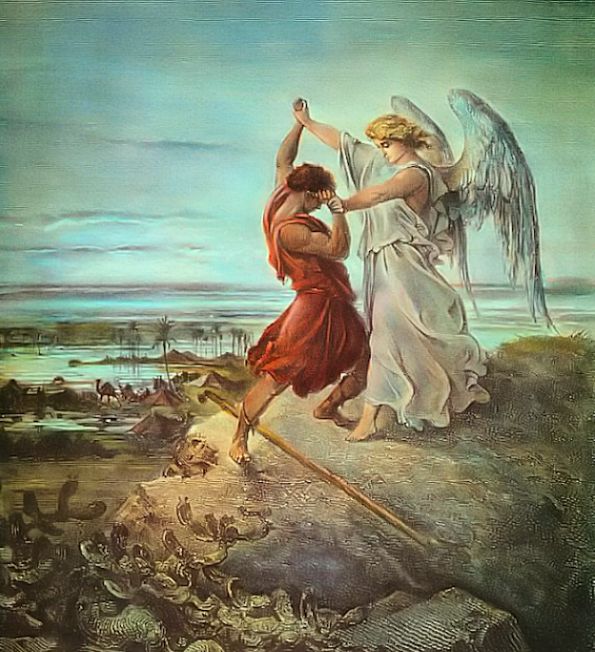
66) Daimonology is fascinated by the past and knows how to navigate into the future; it tries to get the maximum information from every age and every place, but it knows perfectly well that the time to be happy must be the present and it knows too realistically that its greatest qualities arise from the pain of boundless unhappiness.
67) Daimonology is for a holistic medicine and takes health into the utmost consideration, even if it does not even disdain illness. Furthermore, if necessary, it does not exclude the use of any type of treatment to relieve pain, obviously including the more radical and definitive ones.
68) Daimonology is not a sort of Gnostic religion, but it believes in any case in the values of the highest knowledge, even if it knows perfectly well that they will lead us nowhere, in fact in the great alchemical work of the universe everything must putrefy and dissolve for regenerate. Destroy to create, create to destroy.
69) Daimonology knows that only death can nullify absolute power and this is why it rightly considers it one of its greatest instructors, life teacher and inexhaustible source of knowledge.
70) Daimonology takes into maximum consideration the concepts of spirituality, hospitality, loyalty, brotherhood, equality, freedom, charity, faith, compassion, understanding, concord, patience, humility, empathy, sobriety, generosity, and so on.
71) Daimonology is not a conventional discipline, nor can it be enclosed in sterile academic circles or examined in crowded university classrooms, however its enthusiasts for needs of further study are divided into Apprentices, Students, Practitioners, Assistants, Instructors, Masters, Great Expert Masters and Enlightened Sages. Obviously this hierarchy is only symbolic and even a little humorous, but there is still something true in it.
72) Daimonology knows thanks to Einstein that no scientist thinks in formulas, but what he reflects on are ideas, words, language. For this reason literature and aphorisms are the preferential vehicle of his difficult communication and his perennial meditation.
73) Daimonology knows that the proton does not break for the moment and the same happens for stupidity. The subnuclear forces that keep them together are too strong and moreover they increase with the passage of time and the lengthening of space!
74) Daimonology knows that natural heritage with fate (Daimon kai tuke) mixed with an excellent education, not without much experience, and dusted with a good dose of luck decide the fate of a man; rarely, perhaps never, only one of these forces is able to be the decisive one for his existence.
75) Daimonology knows that for art to be such it must be meditative and anarchic. In addition, he is aware, as the wise Lao Tze said, that artists are like mushrooms: out of ten thousand, only one is good. Perhaps!
76) Daimonology knows that power is in the nature of things and knows that it contributes to the thousand conflicts of the human soul and to the great contradictions of the universe. It is neither right nor wrong and no one can escape it. However, only heroes and people of great courage can try to counter it.
77) Daimonology knows how to use reason with passion and passion with reason. His philanthropic nature does not allow the ego to exceed in narrow feelings and therefore his love extends to the whole universe, without forgetting the values of hatred.
78) Daimonology, with the power of the mind, is able to control one’s own behavior and therefore also the uses and abuses of the various elements. Furthermore, it recommends a correct diet, consistent physical and intellectual activity, and a profound inclination to meditation, above all creative.
79) Daimonology as a realistically pragmatic discipline and methodology knows that the human being as such can never be separated from his qualities and his phenomenal manifestations in the broad sense.
80) Daimonology pursues the maximum creativity of the perpetually intellectual research certain that in a truly intelligent and culturally advanced world there would be no need for policemen, judges, prisons, jailers, lawyers, soldiers, pimps, demagogues, and stupid flatterers.
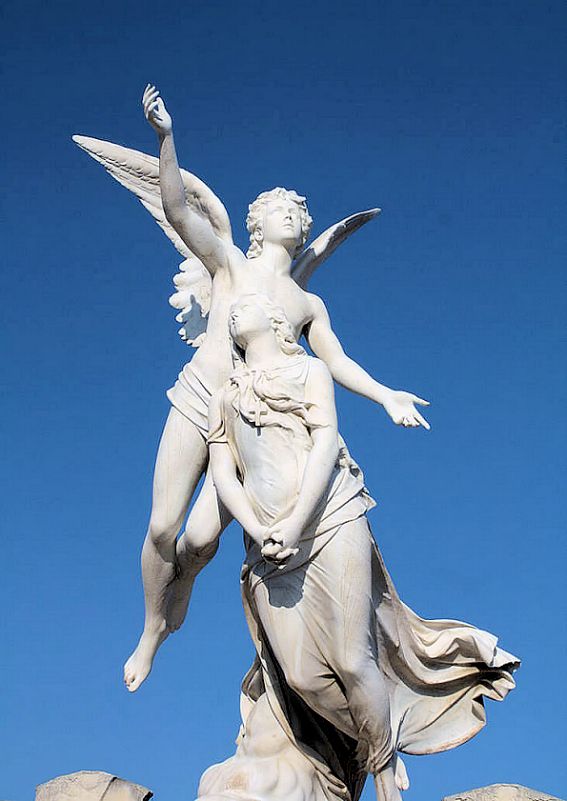
80) Daimonology pursues the maximum creativity of the perpetually intellectual research certain that in a truly intelligent and culturally advanced world there would be no need for policemen, judges, prisons, jailers, lawyers, soldiers, pimps, demagogues, and stupid flatterers.
81) Daimonology knows that studying stupidity means studying the past, the present and the future; stupidity in fact has no age, unfortunately it is eternal. For this reason it uses aphoristic literature and brief reflection as these are nothing more than the most effective forms of synthesis, comparable to the extreme poetry of the most fascinating physical formulas.
82) Daimonology perfectly recalls this ancient Sanskrit proverb: “Observe today, because yesterday is nothing but a dream, and tomorrow only a vision, but today, if well lived, makes every yesterday a dream of happiness and every tomorrow a vision of hope. So take a good look at today.”
83) Daimonology knows perfectly well with Freud that the three great mother divinities of oriental peoples seem to be both generative and annihilating, Goddesses of life and fecundity at the same time as Goddesses of death.
84) Daimonology knows that books are lively and vigorously productive like those fabulous dragon’s teeth which, planted here and there, can make armed men sprout, as our dear Milton wrote.
85) Daimonology knows that in this world everything is in conflict, in contrast, so much so that one can certainly speak of a harmony of opposites. But in the eternal struggle between good and evil, good must strengthen itself and to counter evil it must become more evil; at this point evil can only become better.
86) Daimonology feeds on joie de vivre, optimism, self-confidence, self-esteem, responsibility, mutual respect, human dignity, creativity, healthy satisfaction, wise madness, harmony and physical activity, moderation and mistrust, and considers curiosity, change, gratitude, altruism and sincere charity as fundamental elements.
87) Daimonology knows with Ovid that the art of medicine is usually a matter of time and moreover in general what happens to human beings is sometimes not as decisive as their way of reacting to the events themselves.
88) Daimonology knows that the life of the human being is not a promise to be kept, but only a set of possibilities to be cultivated, so study, passion, love and charity can faithfully guide us along the path of knowledge to the search for true wisdom.
89) Daimonology does not even remotely think of eliminating stress, but it obviously tries to dominate it and make the most of it. To do this, it works to empower the individual on the one hand and to weaken the objective difficulties on the other.
90) Daimonology does not in any way fear difficult and problematic situations, on the contrary it considers them very useful stimuli for one’s emotional, physical, intellectual and spiritual growth. Of course you have to be very careful how you move.
91) Daimonology suggests creating a strong vital purpose and facing existence and all its pitfalls with a great ability to control, with a courageous sense of challenge and obviously with a more than tenacious commitment that must never give in to resignation.
92) Daimonology sees the human being as a unity of body, mind and spirit and never lets itself be influenced too deeply by the negative feelings that animate it, but on the contrary tries to develop mainly the positive ones in it.
93) Daimonology, beyond time and space, knows how to find in the creativity of every human being considerable resources to combat with extreme skill the sense of loss and defeat, distrust, discouragement, lack of energy, helplessness and despair.
94) Daimonology is perfectly aware that change is one of the fundamental operations for improving one’s mental state, in fact a different behavior leads to diversified thoughts and everything can lead to positive and more than pleasant changes.
95) Daimonology knows that the woods would be really silent if only the birds that know how to do it best sang, so it warmly invites you to action to improve both your talents and the very context in which you find yourself living and working . In this way you will certainly find valid reasons to continue on your path.
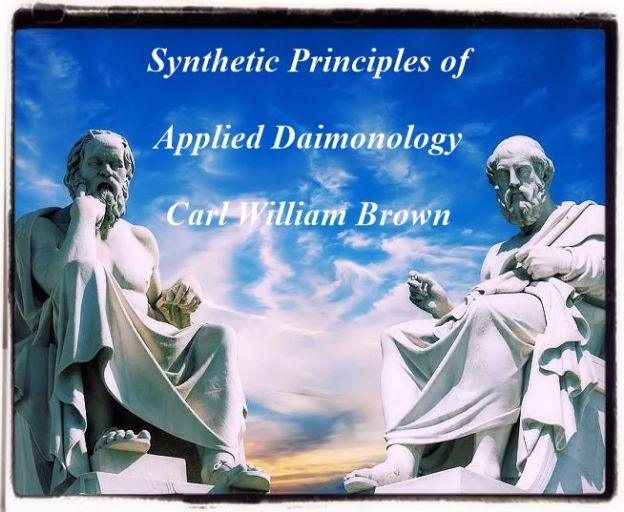
96) While Daimonology seeks the path of continuous development and continuous growth, it knows perfectly well that the human being is already complete in any phase of his mysterious and fascinating evolution.
97) Daimonology, albeit with all the necessary reservations, meditates deeply, at length and with passion on the well-known and intriguing golden rule which reads: “Do to others what you would like others to do to you.” All this can be of considerable stimulus and sincere help.
98) Daimonology warmly invites you to delve into the secrets of our brain, beyond the sterile and banal concepts of good and evil, in fact, being always able to put yourself in the shoes of others, you know that the mind can make hell a paradise and from heaven to hell.
99) Daimonology knows perfectly well that what matters most in the life of human beings is their intrinsic value and not the ephemeral and fleeting success that can, in a stupid and casual way, overwhelm them at any moment.
100) Daimonology is the genius who, while reflecting the light, is rough and opaque, it is the genius who, keeping himself balanced on the precipice of the abyss, knows how to perceive reality in original and unusual ways; he is the genius who knows that trusting is good, but not trusting is better; especially if you are dealing with the appearance of beauty and wealth, in fact the demon of power usually hides under these guises, generally suggestive and attractive, but in the end always illusory, hypocritical, decadent and disappointing.
Here you can read the first 50 synthetic principles of Daimonology.
For those wishing to learn more about the topic, I suggest the following articles, for the moment mostly in Italian, but soon they will be also translated into English.
Principi sintetici di Daimonologia

